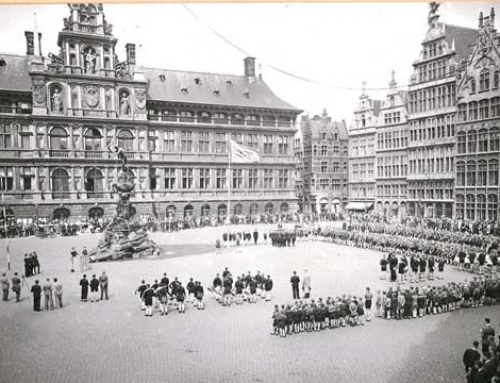Do you hear and see news about the situation in Gaza every day? Any idea how it all started? Not yet? Well, you’re in the right place because I’m going to fill you in.
In 2005, Israel made a brave and historic decision. They decided to completely withdraw from Gaza, an area that had been under their control for years.
It wasn’t just a symbolic act; they literally packed their bags, dismantled their communities, and removed every military post. Imagine, streets that were once guarded by soldiers suddenly became empty and silent.
The idea was for the Palestinian Authority (PA) to fill this void and take full control of the area. This was an opportunity for the PA to show that they could govern stably and peacefully. On paper, it seemed like a big step towards peace and possibly a two-state solution. It was a time of hope and expectation. However, as we know, the story soon took a different turn.
In 2006, Hamas wins the elections in Gaza
But hold on, because here comes the real twist. In January 2006, the Palestinian parliamentary elections took place. Against many people’s expectations, Hamas, an organization more notorious for its militant stance than celebrated for peace initiatives, won. This victory caused quite a stir on the international scene.
The big players on the world stage – the United States, Russia, the United Nations, and the European Union – came together and issued an ultimatum to the newly elected Hamas government. They had three clear demands:
- Recognize Israel’s right to exist,
- Stop all terrorist activities, and
- Adhere to all agreements made in the past with other parties.
You’d think these were reasonable conditions, especially considering that foreign aid to the Palestinian territories was at stake. But Hamas, sticking to their hard line, refused to meet these demands. And what happened next? The tap of international aid was turned off. This left the region in an even more precarious situation, with an organization in power that was unwilling to compromise on the international stage.
2007: A dark year for Gaza
Although Hamas had already achieved a political victory in the 2006 elections, they weren’t satisfied. In June of that year, they decided to tighten their grip on power in Gaza – and they did so with brute force.
The takeover was far from peaceful. Hamas, determined to eliminate any form of opposition, ruled with an iron fist. Opponents, whether they were real threats or merely suspected of dissenting opinions, were taken away without mercy.
Stories of atrocities filled the streets: people were executed in broad daylight, sometimes in front of their family and loved ones. And in some of the most shocking incidents, people (including representatives of the Palestinian Authority) were thrown off buildings, a gruesome act intended to instill fear in the population’s heart.
This violent takeover left a lasting impact on the Gaza Strip. The population lived in constant fear, not knowing who would be the next target. For many, it was clear: this was not a struggle for political power but brutal oppression by a group determined to rule with an iron fist.
The charter of Hamas… “kill all Jews“
Hamas is not just a political movement, a group of activists, and certainly not a ‘liberation movement‘. This organization, founded in 1987, has a clear mission, as stated in their charter: they do not recognize Israel’s right to exist and aim to establish a Palestinian state that covers the entire historical British Mandate territory of Palestine. The most disturbing aspect of their charter is the call for the death of all Jews, clearly indicating that their conflict with Israel goes beyond just land and politics.
This hard stance has led many countries and international agencies to label Hamas as a terrorist organization. We’re talking about major players such as the United States, the European Union, the United Kingdom, Canada, Australia, Japan, and of course Israel. These are not light accusations and are based on years of violent actions and attacks from Hamas.
But what worries me even more is their influence on the ordinary citizens of Gaza. Instead of working towards prosperity and progress, Hamas uses its power to manipulate the population. They maintain strict control over what people say and think. And it gets even worse. Indoctrination begins at an early age. Through education and TV programs, many of which are specifically aimed at children, they spread hate and a distorted view of reality. It’s heartbreaking to see a generation growing up in an environment where hate and intolerance dominate.
And, amidst this geopolitical power struggle, there’s a group that’s hit the hardest: the ordinary citizens of Gaza. Their lives are caught between the harsh regime of Hamas and the conflicts instigated by this grouping. It’s heartbreaking to realize that these innocent people are often used as human shields by Hamas, especially when it provokes a conflict with Israel through terrorist attacks. These citizens, striving for a normal life like all of us, are confronted with unimaginable challenges and suffer daily from the consequences of choices they didn’t partake in. Our compassion goes out to them, and we must be aware of their situation when discussing the conflict in the region.
The Palestinian People are not Hamas, and Hamas doesn’t represent the Palestinian People
You might be wondering why I’m telling you all this and why you should read through it. Well, it’s simple. Knowledge is power. And with this knowledge, you can better understand how complex geopolitical situations unfold.
Israel, a country that has existed for decades in a tension-filled region, has always tried to navigate a democratic and peaceful course. They strive for a society where human rights, freedom of expression, and democracy are at the forefront.
On the other hand, the people in Gaza suffer under the influence of Hamas, a group that, instead of prioritizing the well-being of its citizens, focuses more on its own political agenda. This has led to a situation where ordinary citizens pay the highest price.
So if you remember just one thing from everything I’ve shared, let it be this: it’s crucial to understand that the Palestinian people and groupings like Hamas are not the same. The Palestinian people have a right to peace, safety, and prosperity, just like any other people.
But groupings like Hamas make these goals hard to achieve. We must work together for a world where peace and collaboration prevail and distance ourselves from extremist ideologies that sow further hate and division.






